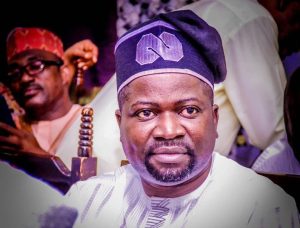EFCC’s Contradictions in Yahaya Bello’s Case: Political Vendetta or Mismanagement?

By Hon. Matthew James Omeiza
The ongoing confusion surrounding the Economic and Financial Crimes Commission’s (EFCC) handling of the case against former Kogi State Governor Yahaya Bello has raised serious doubts about the agency’s integrity and professionalism. Just the day before yesterday, Yahaya Bello was seen at the EFCC office in Abuja, where a photograph showed Michael Nzekwe, the Chief of Staff to the EFCC Chairman, addressing him. Despite this clear opportunity to question or detain the former governor, the EFCC chose not to act. Instead, they later attempted a nighttime raid at the Kogi State Lodge, purportedly to arrest him.
The inconsistency is not just baffling—it’s alarming. The EFCC claimed that they could not arrest Bello during the day due to the entourage that accompanied him, yet this same entourage was present during the nighttime raid, making their reasoning implausible. To make matters worse, the raid involved gunfire, a tactic completely unnecessary for a situation that could have been calmly handled during office hours.
This contradiction becomes even more concerning when considering that the EFCC Chairman, Mr. Olanipekun Olukoyede, had issued a directive last year on November 1st, 2023, banning nighttime raids across all EFCC commands. Despite this ban, the agency still proceeded with a chaotic nighttime operation, contradicting its own policies and raising questions about the internal leadership and decision-making processes of the EFCC.
Yahaya Bello has consistently argued that the case against him is politically motivated rather than a true fight for justice, and the EFCC’s recent actions seem to support this claim. How can the agency justify ignoring his presence in broad daylight only to attempt an arrest under the cover of darkness? If this is not evidence of a politically influenced witch hunt, then what is?
The photograph of Michael Nzekwe addressing Bello at the EFCC office further highlights the agency’s mismanagement. They had every opportunity to conduct a professional and straightforward investigation but instead chose to create a spectacle with a nighttime raid, raising suspicions about the true motives behind their actions.
This series of events has left many Nigerians questioning the EFCC’s credibility. How can an agency tasked with upholding justice show such glaring inconsistencies in a high-profile case? Yahaya Bello’s cooperation with legal authorities has been transparent, and he deserves to be treated fairly, not as a pawn in a politically charged game.
Nigerians must demand accountability from the EFCC, as its recent behavior raises serious concerns about its ability to carry out its mandate with integrity. If they cannot manage this case professionally, how can we trust them to handle other critical matters of justice?








